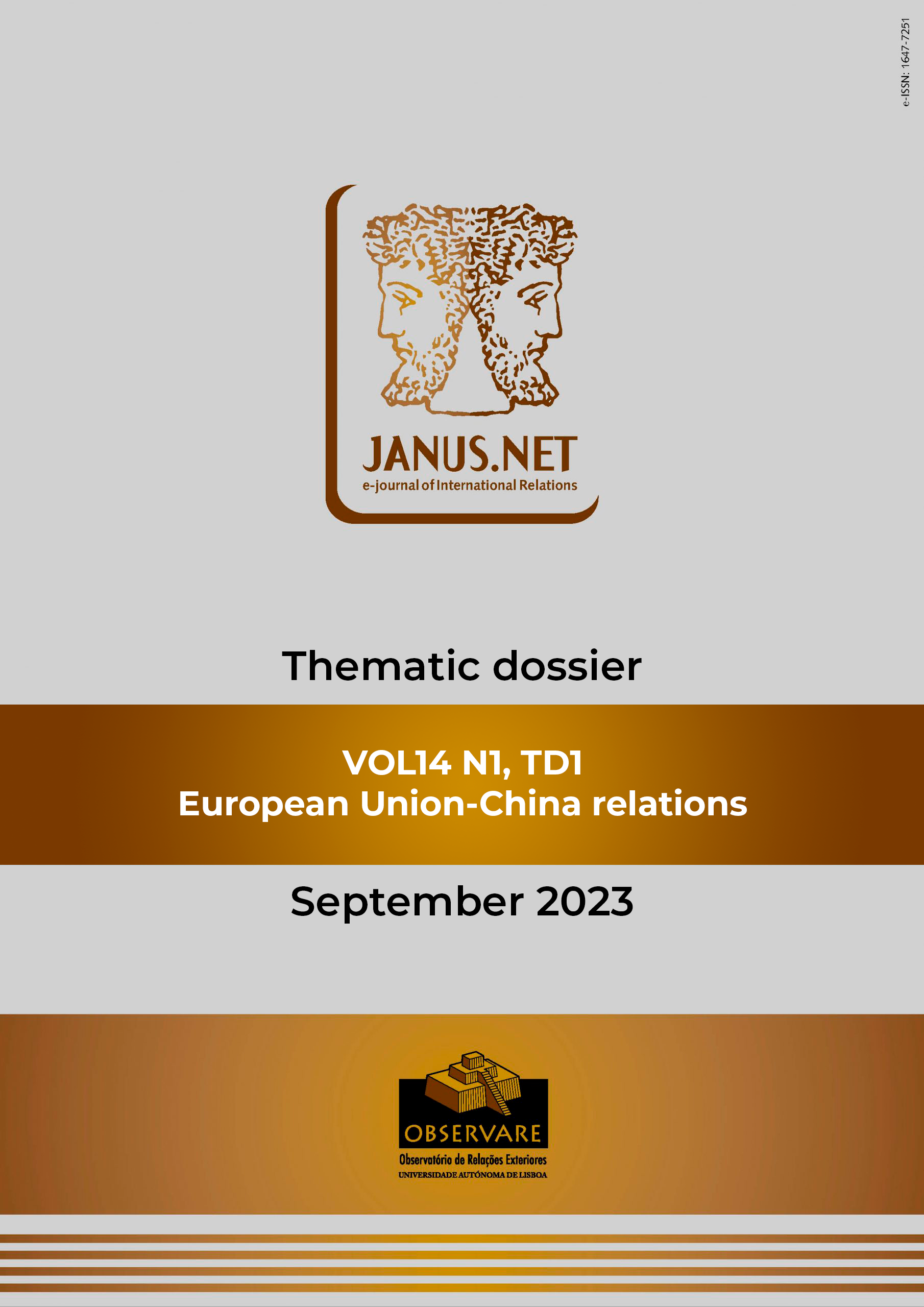PERSPECTIVES ON THE SUSPENSION OF THE EU-CHINA COMPREHENSIVE AGREEMENT ON INVESTMENT
DOI:
https://doi.org/10.26619/1647-7251.DT0123.3Palavras-chave:
UE, Parlamento Europeu, EU-China Comprehensive Agreement for Investment, Opinião PúblicaResumo
A decisão do Parlamento Europeu em suspender a ratificação do EU-China Comprehensive Agreement for Investment (CAI) deu início a uma nova fase das relações entre a União Europeia (UE) e a China. Este artigo analisa alguns dos eventos que levaram esta decisão e considera algumas das suas consequências mais abrangentes. O congelamento formal do Acordo, a 20 de Maio de 2021, levou a uma interrupção abrupta e, provavelmente, pôs fim a sete anos de negociações. Para além da questão da reação chinesa a este inesperado bloqueio de negociações e se o voto do Parlamento Europeu poderia ter sido previsto, o artigo considera o papel da opinião pública europeia e as alterações às percepções da China nas economias avançadas, de acordo com os inquéritos do Pew Research Center. O que levou à suspensão, não foram dissensões na área do investimento ou comércio, mas sim sobre questões de direitos humanos e de legislação laboral, bem como as sanções impostas pela China a membros do Parlamento Europeu, num contexto da repressão chinesa em Xinjiang e Hong Kong. Seguindo a visão de Mario Teló de que o CAI deve ser visto, não apenas como um novo regime de investimento, mas também como um evento internacional relevante com impacto nas relações internacionais, analisamos os indicadores de mudança nas atitudes chinesas em relação à UE. Enquanto alguns dos que votaram a favor da moção podem ter tido, inicialmente, uma visão positiva em relação ao desenvolvimento de um novo enquadramento, os eventos mais recentes demonstram que, mesmo que se dê o reatar negociações, estas não irão pôr em causa os valores fundamentais defendidos pela UE.


